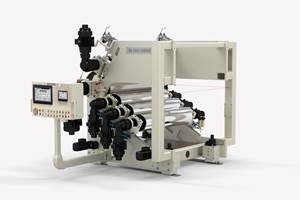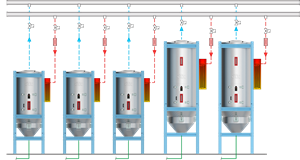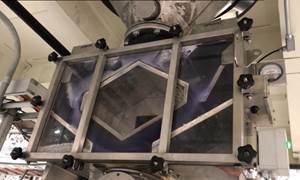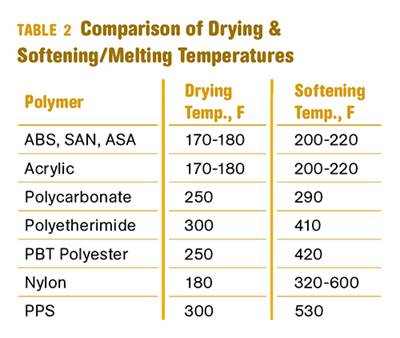Printpak Spearheads Local Effort to Recycle Rigid Plastics
Processor's study shows recycling stream would increase by 20% if rigid plastics were included.
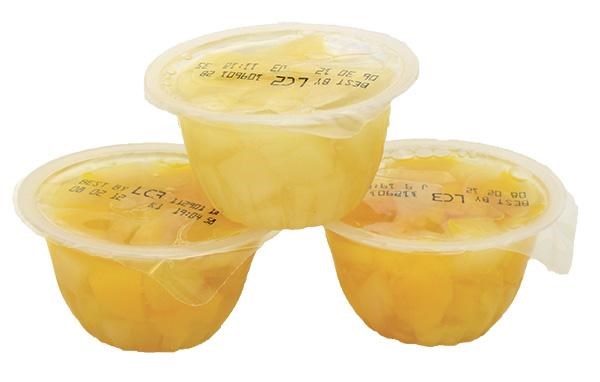
At a time when plastics are being challenged on a regular basis by governments, James City County in Virginia along with three other and Virginia municipalities have joined the ranks of more-progressive lawmakers by making accommodations for their residents to include rigid plastics in their curbside pickup for recycling.
Starting in July 2014, residents in these areas will be able to include plastics like yogurt cups and grocery store clam shells, among other plastic containers in their recycling bins.
The initiative was driven by Printpack Rigid, and Jamie Clark, its v.p. and GM. One of Printpack’s U.S.- based rigid plastics processing plants, which produces sheet rollstock and a variety of barrier PET-based cups for applesauce, pudding, tuna and a variety of other applications, is located within James City County, where Clark also calls home. As an officer of the Society of the Plastics Industry (SPI) and the chairman of the SPI’s Rigid Plastics Packaging Group (RPPG), Clark helped support a study on rigid plastics recovery within the county.
The Virginia Public Service Authority (VPPSA), which manages curbside collection for the four municipalities, led the initiative with support from Printpack and RPPG. The study showed when households were asked to recycle all of their rigid plastics, the entire quantity of recyclables went up by 20% with polypropylene and non-bottle PET making up the majority of the increase. Even PET bottles, which are already included in the program, saw a substantial bump.
National recycling statistics show a trend in improvements in the recovery stream for rigid plastics. Non-bottle rigid plastic recovery has increased threefold since 2007 to 2011 from about 325 million lb to 934 million lb. In addition, the ratio of materials staying in Canada and the U.S. as opposed to shipping to other countries has increased from 37% to 61%, which is higher than aluminum and paper.
Initially, the VPPSA was reluctant when collection of all rigid plastics for recovery had originally been put on the table for discussion, Clark recalls. The market for mixed plastic seemed to be centered overseas, and VPPSA wanted assurances that if it were collected, it would actually be recycled. Traditionally, the only plastic material they accepted was PET bottles and HDPE jugs with necks.
As the project progressed, VPPSA put their contract for collection out to bid. But they did not include all rigid plastics in the RFQ because they were concerned that there wasn’t enough economic incentive to collect the material. VPPSA was also concerned that they might even see cost increases if they included all rigids.
After extensive research on this matter, Jamie Clark ensured them that the domestic market was developing to handle this type of recovery. “The expanded recycling won’t cost the localities more nor require a change in the regional contract. There is enough market for the materials that contractors seem to be looking for more of this mixed plastic to buy,” Clark states. He adds, “The scale of manufacturing in China shows the level of polypropylene consumed is three to four times of that in the U.S. We should not be surprised that Asia has high demand for this raw material. This is a good thing.”
HAMMERING OUT THE DETAILS
This past January, Printpack executives and representatives from the SPI, the Southeast Recycling Development Council, County Waste, the MRF (the company that won the bid), and James City County’s Economic Development and General Services Departments met to work out the program’s details. “The meeting was targeted to roll up our sleeves and figure out how to expand plastics recycling locally,” said Clark. County Waste came in with the attitude of, ‘we’re ready to do it, we’re already doing it elsewhere, so let’s roll.’ County Waste clearly understood that maximizing collection and recycling of all rigid plastics was profitable.
James City County Economic Development Group was instrumental in aligning the parties and moving this initiative forward. Clark added, “There is good reason that Forbes Magazine ranked Virginia the best state for Business in 2013.”
Citizens of the county can expect a simple procedure of simply separating out their plastics in a separate bin to be picked up with regular waste disposal. With local industries and citizens at large aligned, this no cost solution to aid in the recovery of plastics is projected to be a hit in this community.
Related Content
Green’s the Theme in Extrusion/Compounding
The drive toward circular economy is requiring processors to make more use of PCR. Machine builders at K—across all extrusion processes—will be highlighting innovations to help them do just that.
Read MoreHow to Effectively Reduce Costs with Smart Auxiliaries Technology
As drying, blending and conveying technologies grow more sophisticated, they offer processors great opportunities to reduce cost through better energy efficiency, smaller equipment footprints, reduced scrap and quicker changeovers. Increased throughput and better utilization of primary processing equipment and manpower are the results.
Read MoreDeDuster Systems Cleans Up rPET Sheet
rPlanet cut its gel count drastically—allowing it to sell more sheet at prime prices—after installing a DeDuster system.
Read MoreRead Next
How Polymer Melts in Single-Screw Extruders
Understanding how polymer melts in a single-screw extruder could help you optimize your screw design to eliminate defect-causing solid polymer fragments.
Read MoreWhy (and What) You Need to Dry
Other than polyolefins, almost every other polymer exhibits some level of polarity and therefore can absorb a certain amount of moisture from the atmosphere. Here’s a look at some of these materials, and what needs to be done to dry them.
Read More.png;maxWidth=970;quality=90)







.png;maxWidth=300;quality=90)










